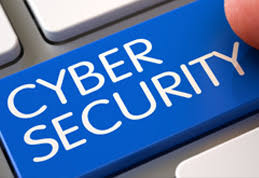
For all of you traveling this summer, perhaps overseas, please remember to:
• Register with the U.S. Department of State — or your home country’s embassy – before traveling abroad. Go to https://mytravel.state.gov/s/step to enroll.
• Ensure you have health coverage while abroad.
• Notify credit card companies and banks of travel plans.
• Have phone numbers of financial institutions, if needed.
• Keep passports, travel documents, and valuables in your hotel safe when you don’t need them.
• Carry backup copies of vital documents.
• Petty crime (such as pickpocketing) is the primary risk to travelers globally. Always remain vigilant in public spaces and crowded areas.
• Try not to carry large amounts of cash.
• Avoid using ATMs on the street. Use one inside a bank or hotel. Set up alerts to monitor transactions at all your financial institutions.
9 safety tips to help you travel smart:
Travel can be a memorable experience to share with family and friends. But there are some important things to consider when planning any trip—especially when traveling to an international destination. The following tips fill in the blanks on what you need to do to ensure a bon voyage.
• Program emergency numbers into your phone.
Ensure that your phone has contact information for your local embassy, health insurance provider, credit card company, and for the people you’re traveling with. All travelers in the group should leverage geo-location services on their mobile phones (e.g., “Find your phone” functionality or family safety applications), so in the event of an emergency individuals may be located or contacted quickly.
• Receive all recommended vaccines.
Before your trip, plan to meet with your health care provider, who can suggest what steps to take to help protect yourself against potential health risks. Schedule appointments in advance to allow for multiple doses, if necessary.
• Notify your personal credit card provider of your international travel plans.
Many credit card companies will suspect fraud and put a freeze on your account if they see charges from a foreign country.
• Be prepared if your passport and/or travel documents are lost or stolen.
Photocopy or scan your passport and carry a copy with you. Also, carry a printed copy of your travel itinerary and electronic ticket receipts.
• Protect your home while you’re away.
Take the necessary steps to avoid tipping off thieves. Before you leave, either have a trusted party retrieve your mail or contact the postal service to stop delivery. Avoid posting your travel plans on social media, and don’t tag your location while on your trip.
• Register your international trip with the U.S. Department of State—or your home country’s embassy, if possible—and perform basic research.
U.S. citizens can register at the State Department’s Smart Traveler Enrollment Program (STEP). Also, check the State Department’s website for information regarding your international travel destination before you leave. Understand the following for all areas visited: hospitals near you, known crime areas, planned major events/protests, etc.
• Obtain dedicated travel medical insurance to cover you and your family abroad.
Check with your health insurance provider to understand your coverage abroad and find out what your policy will and will not cover. Oftentimes, there are gaps in coverage and the best step is to consider purchasing dedicated travel medical insurance. Particularly, to assist in events requiring emergency medical treatment and evacuation, it’s prudent to hire a provider specifically skilled in this area.
• Activate international calling on your cell phone.
When traveling internationally, verify that your phone will work in the country you are visiting and activate the appropriate international service with your provider or rent a phone as needed. When you arrive, make a test call to ensure the phone is working. Don’t forget to pack a charger that will work where you’re going.
• Overall Personal security.
- Remember to secure cash, credit cards, and other valuables
- Petty crime (such as pickpocketing and bag snatching) is the primary risk to travelers globally.
- Always remain vigilant in public spaces and crowded areas.
- Try not to carry large amounts of cash.
- If you can, avoid using ATMs on the street and use one inside a bank or hotel. Set up alerts to monitor transactions at all your financial institutions.
- Never leave belongings unattended. Keep valuables in your carry-on luggage (not checked baggage) during the flight.
- Keep passports, travel documents, and valuables in your hotel safe when you don’t need them.
- Unless the country requires you to carry your actual passport, carry a copy of the photo page for ID purposes.
- Take any necessary medications with you in their original containers and keep them in your carry-on luggage during the flight.






